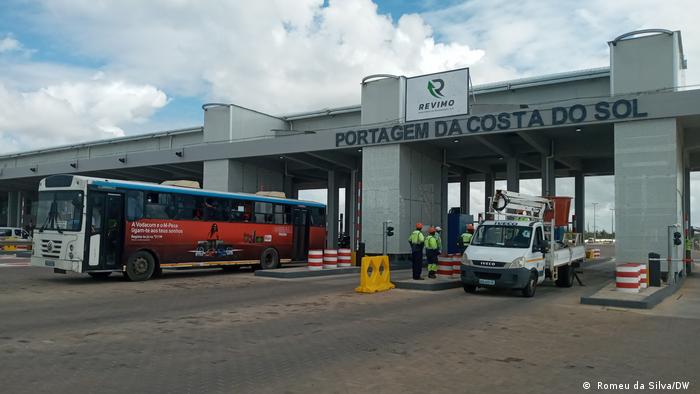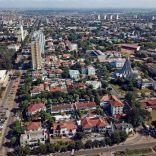Mozambique: Central bank's advances and loans to the State increased by 52% in 2024
Mozambique: Tolls are for road maintenance only. Then who will pay the debt? – Carta

Image: DW
This Tuesday, February 1, 2022, the toll charge for circulation on the Maputo Ring Road came into effect at the four toll plazas built along the 70 km road connecting the municipalities of Maputo and Matola and the district of Marracuene.
According to the government, the installation of tolls aims to guarantee the maintenance of the road, within the scope of the “user pays” model. This thesis is also supported by the Chairman of the Board of Directors of Rede Viária de Moçambique (REVIMO), ngelo Lichanga, who says that maintenance work on the road has already been underway since 2020.
“Since 2020, our company has been carrying out daily routine maintenance, cleaning the roads and drainage ditches, filling holes and constantly replacing curbs and posts knocked down on the platform,” said Lichanga.
However, neither REVIMO nor the government reveals who is to pay the US$300 million debt to the Exim Bank of China for the construction of the road. In total, the Ring Road cost US$355 million, of which US$40 million was invested by REVIMO in the completion of the Tchumene interchange (one of three built along the route) and construction of the tolls, which corresponds to 11.3% of the total investment. That is, 88.7% of the money invested in the construction of the road came out of Mozambicans’ pockets.
REVIMO explained to the Public Integrity Centre (CIP) that the investment for the construction of the Ring Road was not taken into account when setting the toll rates, as the road was built with public funds. The tolls are intended simply to guarantee maintenance and cover operating costs over the length of the road, for the concession period. In other words, REVIMO will simply fatten the pockets of its shareholders, while Mozambicans pay for the construction of the road and the debt incurred with China.
In fact, during the 20 years that it will manage the Maputo Ring Road, REVIMO does not plan to widen the route, but only to carry out routine maintenance. In the interview given to Noticias, the company’s CEO was confronted with the issue of congestion on the Avenida da Marginal Costa do Sol section at peak hours, having said that the institution was consicering introducing a third lane at peak hours only.
“The number one solution is to widen the road, but (…) this possibility cannot be considered in the next five or ten years. We are negotiating with our partners, the Municipality of Maputo and the National Roads Administration, to introduce a third lane at peak hours to try to alleviate [the congestion],” Lichanga said.
However, he promises that by Year 15 of the concession (five years before the period ends), the company will carry out a “major intervention to ensure that, by the end of the concession, the road is ‘as new’”, but without specifying what type of ‘major’ work REVIMO will carry out.
In fact, so far, REVIMO has built no known road from scratch. The concession roads were built with public funds, Revimo being awarded only management functions. These are National Roads Nº6 (which departs from the port of Beira to the border of Machipanda) and Nº 1 (on the KaTembe-Ponta D’Ouro section); the Boane-Bela Vista, Macie-Praia de Bilene, Macie-Chókwè and Chókwè-Macarretane roads; and the Maputo-KaTembe Bridge.
The Maputo Ring Road, Roads Nº6 and Nº1, the Bela Vista-Boane road and the Maputo-KaTembe Bridge are still in debt to the Exim Bank of China, and REVIMO will not disburse a cent to reimburse the Chinese bank. The total amount invested in these works is approximately US$1,750,000.
By Abilio Maolela












Leave a Reply
Be the First to Comment!
You must be logged in to post a comment.
You must be logged in to post a comment.